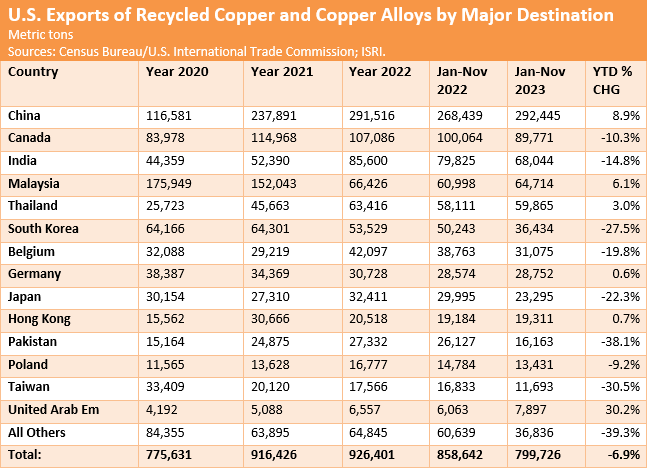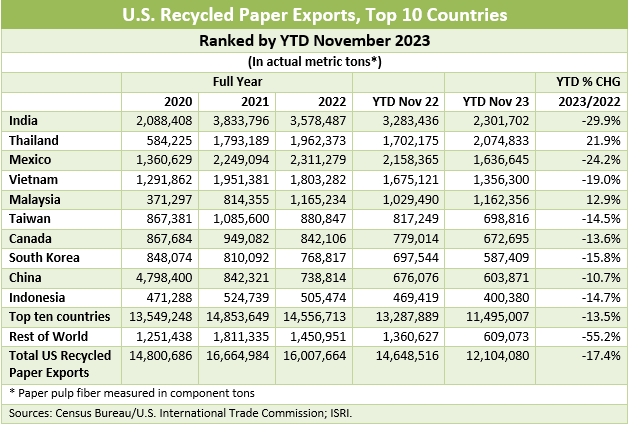
The year looks bleak for China as its property market downturn continues to accelerate. The downturn began in early 2022 when both investment and sales of property in China began declining. Beijing attempted to combat the decline through an abundance of support measures released late last year to help the real estate market, though many analysts thought these measures were too little, too late.
The New York Times reported, “In 2023, China’s housing sales fell 6.5 percent. In December alone, sales were down 17.1 percent from a year earlier, according to Dongxing Securities, a Chinese investment bank. Investment for new projects also slowed. Real estate development fell 9.6 percent last year.”
In late January 2024, China Evergrande Group — once China’s largest property developer — was ordered to liquidate its assets by a Hong Kong court after the company was unable to come to an agreement with its creditors on restructuring its debt.
China’s property market crisis has prompted forecasters to downwardly revise their growth projections for the world’s second largest economy. The International Monetary Fund (IMF) is now projecting Chinese GDP growth will slow from 5.2% growth in 2023 to 4.6% growth in 2024 and 4.1% growth in 2025.
According to the IMF, “The real estate crisis could deepen further in China, an important risk for the global economy… If real estate prices decline too rapidly, the balance sheets of banks and households will worsen, with the potential for serious financial amplification. Country Garden — China’s largest property developer and a major beneficiary of government support — is facing severe liquidity stress, a sign that real estate distress is spreading to stronger developers, despite policy easing measures. China’s property sector crisis could deepen, with global spillovers, particularly for commodity exporters.”
For the U.S. recycled materials industry this would heavily impact the global demand landscape, especially for nonferrous metal and recycled paper.
In 2023, China was the third largest export market for U.S. recycled materials by dollar value behind Canada and India. According to ReMA and the latest U.S. Commerce Department trade data, U.S. exports of recycled materials to China increased 1.7% year-on-year in 2023 to $2.45 billion. Of that total, recycled nonferrous metal exports accounted for 90% by value, or $2.2 billion.

More than 37% of all recycled copper exports went to China in 2023. In terms of quantity, U.S. exports of recycled copper and copper alloys to China rose 12.1% from 291,516 metric tons in 2022 to 326,855 metric tons in 2023 making China the top export destination for this recycled material. In dollar terms, U.S. exports of recycled copper to China rose 7.1% year-on-year in 2023 to nearly $2.1 billion.

The most recent data show U.S. recycled paper exports to China decreased 12.8% from 738,814 metric tons in 2022 to 643,992 metric tons in 2023. While there was a significant decrease in terms of quantity, some paper exports sent to surrounding Asian countries tend to find their way into China in one form or another. In dollar terms, U.S. exports of recycled paper to China plunged by 45% year-on-year in 2023 to just $153.6 million.

The downturn in China’s demand for U.S. recycled paper has been the single largest contributor to the overall decline in recycled material trade flows between the two countries. After peaking at 22.2 million metric tons in 2011, the U.S. exported just over 1 million metric tons of all recycled materials to China in 2023. China’s on-going property market crisis could accelerate that trend in 2024.
“While the Chinese government is attempting to remedy this property crisis, the risks associated with exporting to China are only expected to increase the longer the crisis drags on,” said ReMA Chief Economist Joe Pickard.

The year looks bleak for China as its property market downturn continues to accelerate. The...